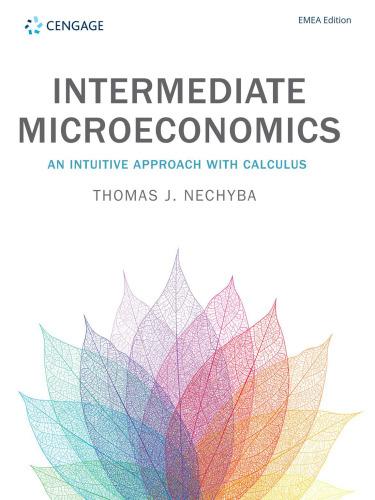3.3 Everyday Application: Investing for Retirement. Suppose you were just told that you will receive a year-end
Question:
3.3† Everyday Application: Investing for Retirement. Suppose you were just told that you will receive a year-end bonus of €15 000 from your company. The marginal income tax rate is 331
/3 per cent, which means that you will have to pay €5000 in income tax on this bonus. You expect the average rate of return on an investment account you have set up to be 10 per cent annually and, for the purposes of this example, assume interest compounds annually.
A. Suppose you have decided to save all of this bonus for retirement 30 years from now.
a. In a regular investment account, you will have to pay tax on the interest you earn each year. Thus, even though you earn 10 per cent, you have to pay a third in tax, leaving you with an after-tax return of 62
/3 per cent. Under these circumstances, how much will you have accumulated in your account 30 years from now?
b. An alternative investment strategy is to place your bonus into a pension. Government regulations state that you do not have to pay tax on any income that is put into a pension, and you do not have to pay tax on any interest you earn. Thus, you can put the full €15 000 bonus into the pension, and earn the full 10 per cent return each year for the next 30 years. You do, however, have to pay tax on any amount that you choose to withdraw after you retire. Suppose you plan to withdraw the entire accumulated balance as soon as you retire 30 years from now, and suppose that you expect you will still be paying 331
/3 per cent tax at that time. How much will you have accumulated in your pension, and how much will you have after you pay tax? Compare this with your answer to (a), that is to the amount you would have at retirement if you saved outside the pension.
c. True or False: By allowing individuals to defer paying tax into the future, pensions result in a higher rate of return for retirement savings.
B. Suppose more generally that you earn an amount I now, that you face and will face in the future a marginal tax rate of t expressed as a fraction between 0 and 1, that the interest rate now and in the future is r, and that you plan to invest for n periods into the future.
a. How much consumption will you be able to undertake n years from now if you first pay your income tax on the amount I, and place the remainder in a savings account whose interest income is taxed each year? Assume you add nothing further to the savings account between now and n years from now.
b. Now suppose you put the entire amount I into a tax-advantaged retirement account in which interest income can accumulate tax free. Any amount that is taken out of the account is taxed as regular income. Assume you plan to take out the entire balance in the account n years from now but nothing before. How much consumption can you fund from this source n years from now?
c. Compare your answers to
(a) and
(b) and indicate whether you can tell which will be higher.
Step by Step Answer:

Intermediate Microeconomics: An Intuitive Approach With Calculus
ISBN: 116465
1st Edition
Authors: Thomas Nechyba






